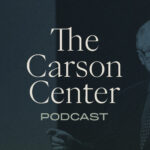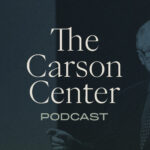Note from Collin Hansen, TGC editorial director: This week we’re examining the thorny issue of pulpit plagiarism. We’ll hear from pastors, ethicists, scholars, and researchers to work toward common understanding on this pressing, perennial dilemma. First up is TGC president and New Testament scholar Don Carson.
See also Pastoral Plagiarism Is an Integrity Issue. Read other responses from: Sandy Willson, Tim Keller, Matt Perman, and Glenn Lucke.
First: Taking over another sermon and preaching it as if it were yours is always and unequivocally wrong, and if you do it you should resign or be fired immediately. The wickedness is along at least three axes: (1) You are stealing. (2) You are deceiving the people to whom you are preaching. (3) Perhaps worst, you are not devoting yourself to the study of the Bible to the end that God’s truth captures you, molds you, makes you a man of God and equips you to speak for him. If preaching is God’s truth through human personality (so Phillips Brooks), then serving as nothing more than a kind of organic recording device in playback mode does not qualify. Incidentally, changing a few words here and there in someone else’s work does not let you off the hook; re-telling personal experiences as if they were yours when they were not makes the offense all the uglier. That this offense is easy to commit because of the availability of source material in the digital age does not lessen its wickedness, any more than the ready availability of porn in the digital age does not turn pornography into a virtue. (Occasionally preachers have preached a famous sermon from another preacher, carefully noting their source. That should be done, at most, only very occasionally, but there is no evil in it.)
Second: Taking over the structure, perhaps the outline in exact wording, and other significant chunks, while filling in the rest of the substance yourself, is not quite so grievous but still reprehensible. The temptation springs from the fact that writing a really good outline is often the most creative and challenging part of sermon preparation. Fair enough: if you “borrow” someone else’s outline, simply acknowledge it, and you have not sinned.
Third: In the course of diligent preparation, you are likely to come across clever snippets and ways of summarizing or formulating the truth of a passage that are creative and memorable. If you cite them, you should acknowledge that they are not yours, either with an “As so-and-so has said” or an “As someone has said.” This discipline keeps you honest and humble.
Fourth: If you read widely and have a good mind, that mind will inevitably become charged with good things whose source or origin you cannot recall. Often such sources can be tracked down fairly easily. On the other hand, do not become paranoid: a well-stocked mind is the result of decades of reading and learning, and ought to overflow easily and happily with gratitude toward God to the blessing of God’s people. Johann Albrecht Bengel (1687-1752): “Apply yourself wholly to the text; apply the text wholly to yourself.”
Involved in Women’s Ministry? Add This to Your Discipleship Tool Kit.
 We need one another. Yet we don’t always know how to develop deep relationships to help us grow in the Christian life. Younger believers benefit from the guidance and wisdom of more mature saints as their faith deepens. But too often, potential mentors lack clarity and training on how to engage in discipling those they can influence.
We need one another. Yet we don’t always know how to develop deep relationships to help us grow in the Christian life. Younger believers benefit from the guidance and wisdom of more mature saints as their faith deepens. But too often, potential mentors lack clarity and training on how to engage in discipling those they can influence.
Whether you’re longing to find a spiritual mentor or hoping to serve as a guide for someone else, we have a FREE resource to encourage and equip you. In Growing Together: Taking Mentoring Beyond Small Talk and Prayer Requests, Melissa Kruger, TGC’s vice president of discipleship programming, offers encouraging lessons to guide conversations that promote spiritual growth in both the mentee and mentor.
































